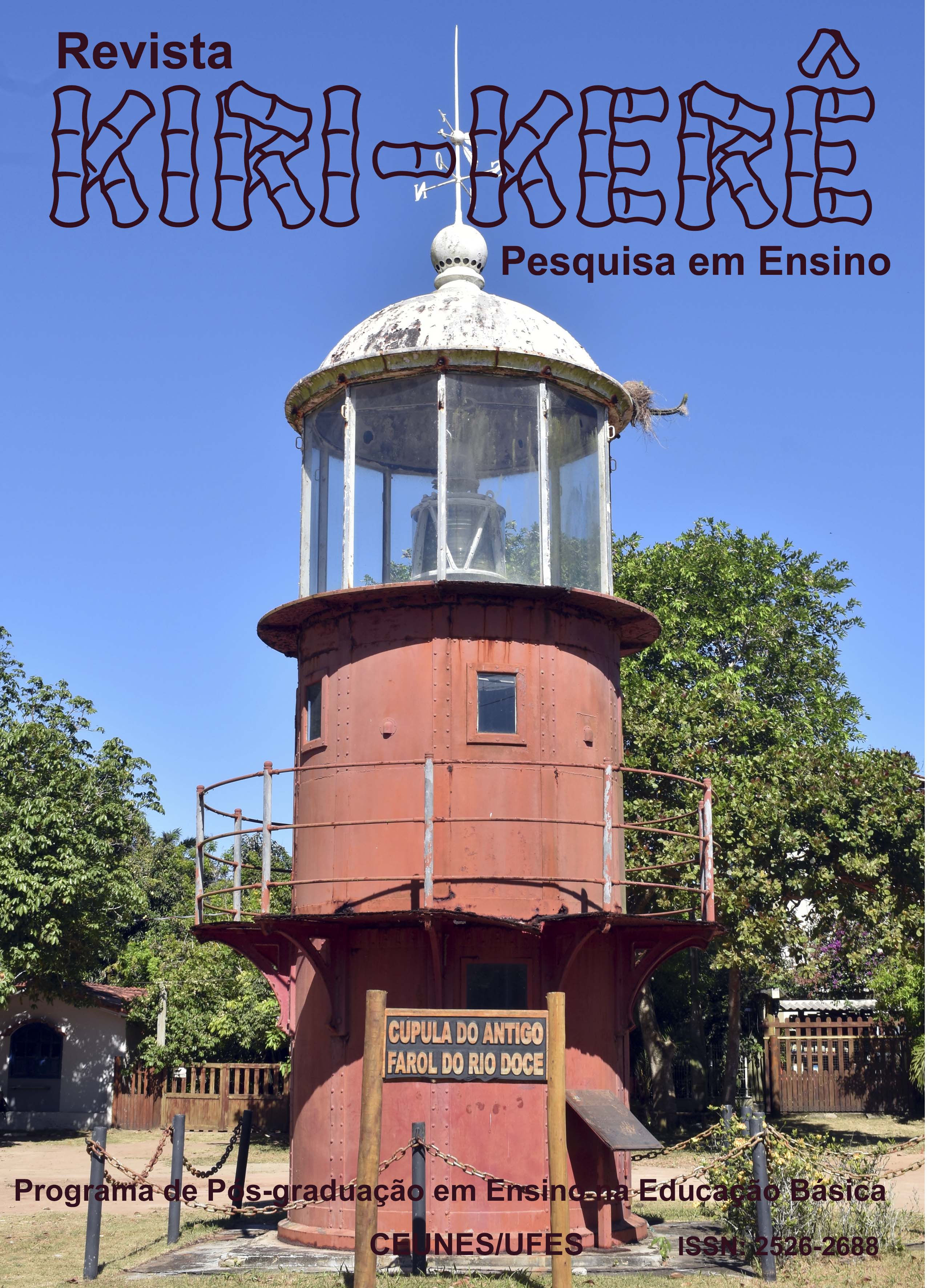O Ensino de História e a Influência da Cultura Africana na Culinária Brasileira na Educação Infantil
DOI:
https://doi.org/10.47456/krkr.v1i22.45388Palavras-chave:
Palavras-chaves: Culinária brasileira; Influências da Cultura Africana; Ensino de História; Educação InfantilResumo
Resumo: Este trabalho tem como objetivo tecer algumas reflexões sobre o ensino da disciplina de História acerca da influência africana na culinária brasileira no contexto da Educação Infantil. Os principais referenciais teóricos selecionados foram Paiva (2017) e Cascudo (1967), devido à riqueza de informações a respeito da culinária brasileira e os pratos típicos que se formaram a partir das influências da cultura africana. O restante da bibliografia utilizada foi sendo incluída conforme a procura deste tema na Educação Infantil, visto que é um tema pouco explorado, provavelmente porque a disciplina de História não é componente curricular desta etapa da Educação Básica. A metodologia desenvolvida neste trabalho foi o estudo de caso em conjunto com a pesquisa documental, a partir do estudo de caso realizado no CMEI onde a presente autora deste texto faz estágio não-obrigatório, utilizando como pesquisa documental as atividades feitas pelas crianças e disponibilizadas pela professora. Nesse contexto, verificou-se que é possível trabalhar o tema da culinária brasileira e as influências da cultura africana na Educação Infantil, sendo de suma importância, pois as crianças têm direito de saber mais sobre a sua cultura como cidadãs brasileiras e têm direito de aprender.
Referências
ALVARENGA, Mary. A influência africana na culinária brasileira. Slides share.
Disponível em: <http://www.slideshare.net/Alvarenga-48/culinaria-afrobrasileira-14346412> Acesso em 25 de novembro de 2023.
BLOCH, Marc. Apologia da história ou o ofício do historiador. Rio de Janeiro: Jorge Zahar, 2001.
BRASIL. Ministério da Educação. Base Nacional Comum Curricular. Brasília, 2018.
CAMBÉ, Rede Municipal de Ensino de. Secretaria Municipal de Educação. Currículo para a Rede Pública Municipal de Ensino de Cambé, Educação Infantil. Cambé, PR, 2020
CASCUDO, Luís da câmara. História da alimentação no Brasil. Companhia Editora Nacional, v1: São Paulo, 1967.
COSTA, Marli Lopes e CASTRO, Ricardo Vieiralves de. Patrimônio Imaterial Nacional: preservando memórias ou construindo histórias? Rio de janeiro: Estudos de Psicologia, 2008.
COSTA, Fládia Carneiro da; NETO, Pedro Abreu da Silva; CARVALHO, Diana Valesca; GOUVEIA, Sandro Thomaz; LIMA, Francisca Elisângela Teixeira; SOUSA, Paulo Henrique Machado. Variações gastronômicas do mungunzá ao percorrer o Brasil: estudo bibliográfico. Fortaleza, CE: Revista de Nutrição e Vigilância em Saúde, v.10, 2023.
FREYRE, Gilberto. Casa-grande e Senzala: formação da família brasileira sob o regime da economia patriarcal, 48°ed. São Paulo: Global, 2003.
GIL, Antonio Carlos. Métodos e técnicas de pesquisa social. 6. ed.- São Paulo: Atlas, 2009.
LINA. Chaud Patate. Raiz africana na Bahia: o Munguzá. Disponível em: https://lechaudpatate.com/2018/04/04/raiz-africana-na-bahia-o-munguza/. Acesso em: 25/11/2023.
MIRANDA, Liliane de Jesus Nascimento; SCHIER, Dirlei Afonso. A influência do ensino de história na educação infantil e formação do aluno. Educação em Foco, Edição nº: 08/Ano: São Paulo, 2016
PAIVA, Maria da Conceição. A presença africana na culinária brasileira: sabores africanos no Brasil: Juiz de fora, MG, 2017.
Downloads
Publicado
Edição
Seção
Licença
Copyright (c) 2024 Kímberly Barcelos de Oliveira

Este trabalho está licenciado sob uma licença Creative Commons Attribution-NonCommercial 4.0 International License.
Os autores aceitam, quando do envio de seus trabalhos, a cessão dos direitos editoriais dos mesmos.









